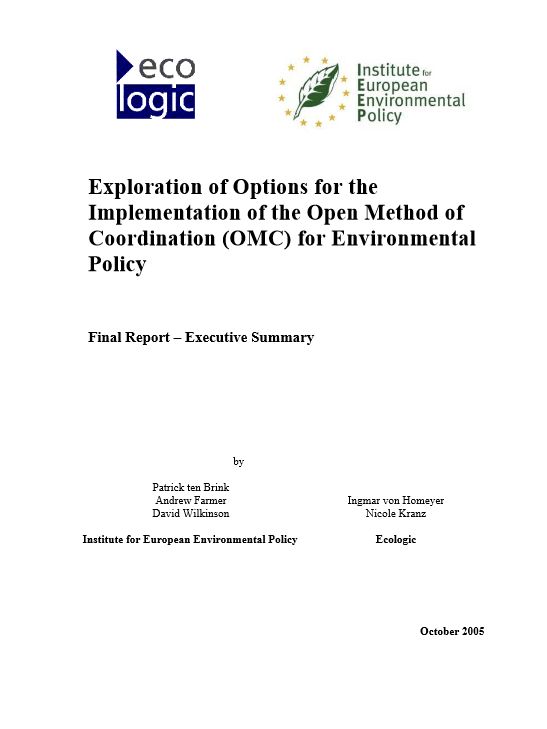Options for Applying the Open Method of Coordination in EU Environmental Policy
- Project
- Duration
-
-
This project aims to identify options for applying the Open Method of Co-ordination (OMC) in EU environmental policy. In recent years the OMC has emerged as an increasingly important instrument of EU governance. Rather than relying on legally binding rules, the OMC works through the diffusion and evaluation of information.
The formulation of differentiated goals, benchmarking, regular reporting, and peer review are among the main tools employed. Overall, the OMC aims to achieve greater convergence of EU Member States’ policies.
So far the OMC has been applied primarily in fields for which EU competencies are weak, for example in the area of social policy. Although there is a need for policy co-ordination at the EU-level in these fields, structural differences among Member States and a high degree of political sensitivity prevent a major increase of EU legislative competencies in these areas.
Although in general the EU has considerable legislative environmental competencies, the potential for applying the OMC in this field is being discussed. Relevant considerations include the following: legislative instruments may not be sufficient to deal with some of the challenges which EU environmental policy needs to address. For example, this may be the case with respect to achieving sustainable development, the integration of environmental concerns into other policies, and more effective implementation of legislative measures. In addition, for certain environmental issues, EU legislative competencies are insufficient.
Aiming to identify general factors relevant for a successful application of the OMC, this project analyses various existing formal or informal OMCs. These factors are then used to identify the conditions, and concrete potential fields, for a successful application of the OMC in EU environmental policy.
Here you can download the project report [pdf, 578 KB, English].




